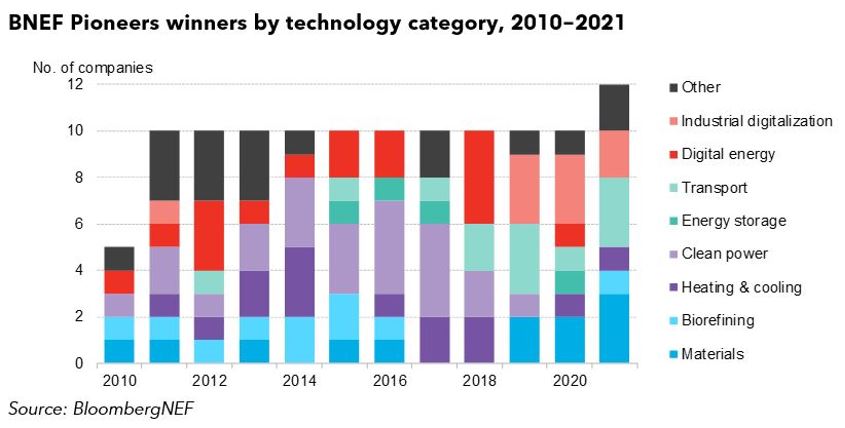Achieving anything close to an average rise in global temperatures of 1.5 degrees Celsius this century will require not only policy, regulation and financing but also new technology breakthroughs. This is why COP26 is hosting a Science & Innovation Day in Glasgow.
While we know how to build affordable renewable power generation at scale, we do not yet have a definitive answer for how to eliminate all forms of fossil fuels from power generation. Or for how to ensure the zero-carbon power generation we do build is as sustainable as possible, such as nuclear power, and is not severely affected by changes to our climate, such as hydro power.
We must also find competitive and scalable technologies for displacing petroleum and natural gas from sectors where clean electricity is possibly not the solution: from industrial processes, to plastics and textiles, to long-haul aviation and shipping. And while we are still using fossil fuels we must develop technologies to help us track and quantify dangerous levels of methane leaks and flares.
Decarbonizing our existing industries is not enough to limit the worst effects of climate change. We must also find methods of large-scale CO2 removal from the atmosphere. Agreements to stop deforestation will get us part of the way, but we must invest in new technologies to find other CO2 removal methods and technologies to track the efficacy of nature-based carbon sinks.
The good news is that there are thousands of exciting innovators, within startups, non-profits and larger corporations, working on these exact problems. One task of BloombergNEF’s annual Pioneers program is to shine a light on unique innovations that have the potential for significant impact and a high likelihood of being adopted. The BNEF Pioneers is currently receiving applications here.
For more than a decade, the BNEF Pioneers program has identified 10 or more game-changing technologies or innovations annually – each with the potential to accelerate global decarbonization and halt climate change.
2022 BNEF Pioneers program
For 2022, the program has chosen three climate challenges to focus on and will award the Pioneers prize to applicants whose innovations have the potential to solve the following:
1. Providing round-the-clock zero-emissions power
Solar, wind and existing storage technologies can provide about three-quarters of our electricity needs in future, but to reach net zero requires other technologies to close the remaining gap. Eliminating the use of unabated fossil fuels in an affordable way could require innovation in new and/or improved forms of net-zero baseload generation, in technologies that can store renewable electricity for long periods of time, or in technologies that can provide inertia and other forms of frequency and voltage regulation, and bolster system strength.
2. Scaling long-term carbon removal technologies
Meeting net-zero targets will first and foremost require rapid, deep emissions reductions, but it is becoming clear that carbon dioxide will also have to be removed from the atmosphere to avoid warming above 1.5 degrees. Calculations of how much removal is required vary dramatically, but BNEF’s Gray Climate Scenario requires 1.6 billion tons of carbon offsets by 2050, and Mark Carney has called for a $100 billion per year voluntary offset market. Current carbon offsetting projects rely on planting and protecting forests, but this can be hard to certify and is often only temporary removal. New innovations could include ways to improve existing nature-based carbon offsetting, or finding ways to scale regenerative farming and ocean fertilization. Innovations for new technologies that offer measurable, scalable and long-term removal – such as direct air capture – must also be explored.
3. Decarbonizing aviation
Aviation accounts for 2% of annual global CO2 emissions and airplane contrails contribute toward global warming. As air travel becomes more affordable for an increasing share of the world’s population demand for air miles is set rise, tripling between 2019 and 2050. While there is some promise in electrifying short-haul flights, and some use cases of biofuels and hydrogen, none of these have scaled up. New innovations could include advances in these technologies, as well as new engine and component design, flight efficiency and traffic control improvements.
BNEF will also select one or more wildcard winners, unrelated to the above challenge. These wildcard applicants can address any issue that helps the world decarbonize, and we encourage submissions for all climate-tech solutions that lie outside the three challenges outlined above.
Previous Pioneer winners have raised over $14 billion in financing
BNEF has named 117 Pioneers in the 12-year history of the competition. As of early May 2021, the winners had disclosed over $12.6 billion in VCPE financing. Since then, winners Stem, REE and Proterra have raised over $1.5 billion via reverse mergers. Winners EVBox, Planet and Bright Machines are planning to public through reverse mergers.
Previous winners have offered innovations for sustainable materials, biofuels, heating & cooling, clean power, electric transport and energy storage. The winners in 2021 were the most diverse group yet, ranging from carbon-dioxide absorbing seawall infrastructure (ECOncrete) to building nanosatellites for earth observation (Planet) to optimizing commercial shipping routes (Nautilus Labs).

The application process
Applications for the competition opened on October 4, here, and will close on November 11, 2021. The winners will be announced in early April 2022. Contact us at pioneers@bloomberg.net for any questions about this year’s application process. We accept applications from early-stage companies; pilot projects and joint ventures: NGOs, laboratories and innovation communities.